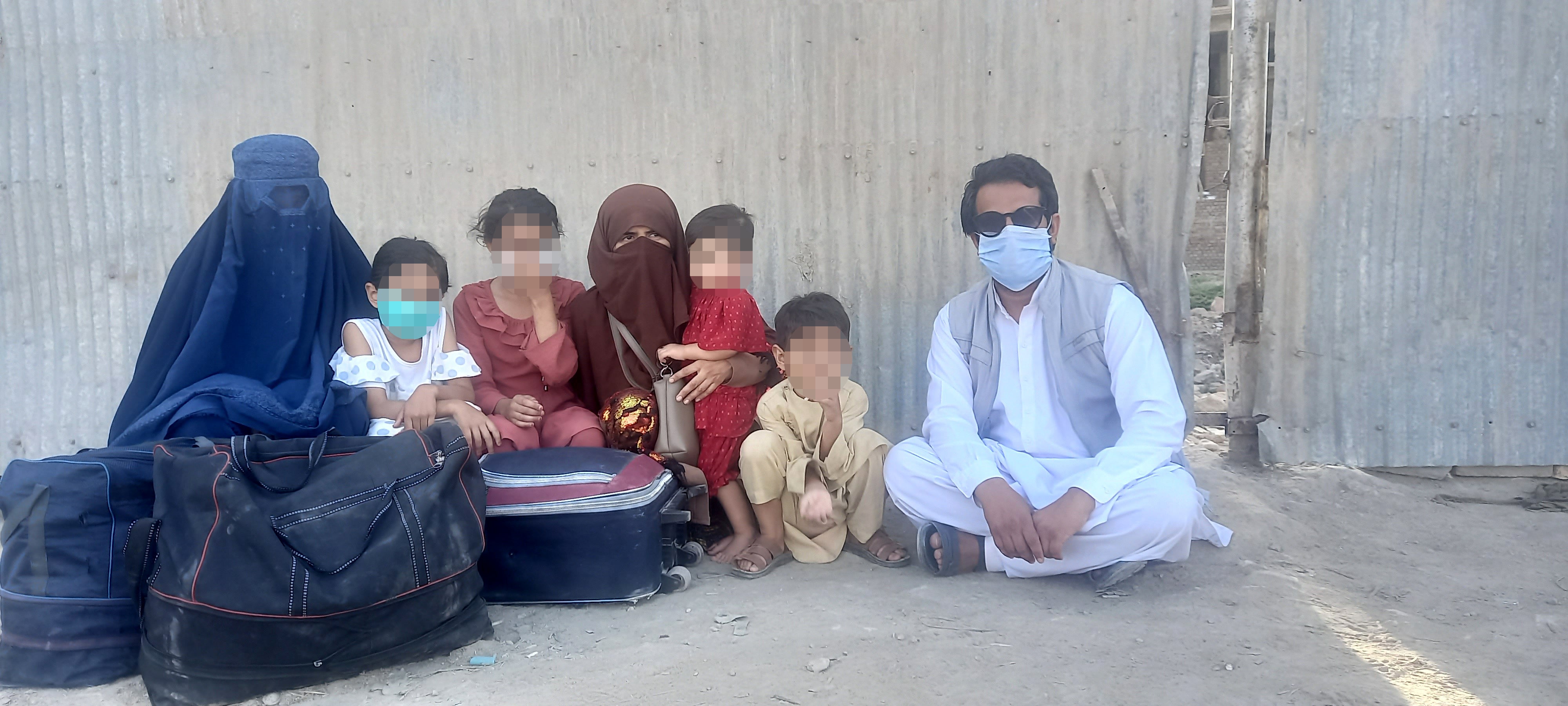‘They want to kill me’: The Afghan interpreters left behind by the UK
‘We can’t stay here, it’s not safe’ says one of hundreds of former interpreters left behind fearing for their lives

Your support helps us to tell the story
From reproductive rights to climate change to Big Tech, The Independent is on the ground when the story is developing. Whether it's investigating the financials of Elon Musk's pro-Trump PAC or producing our latest documentary, 'The A Word', which shines a light on the American women fighting for reproductive rights, we know how important it is to parse out the facts from the messaging.
At such a critical moment in US history, we need reporters on the ground. Your donation allows us to keep sending journalists to speak to both sides of the story.
The Independent is trusted by Americans across the entire political spectrum. And unlike many other quality news outlets, we choose not to lock Americans out of our reporting and analysis with paywalls. We believe quality journalism should be available to everyone, paid for by those who can afford it.
Your support makes all the difference.Afghan interpreters who worked for the British army have told The Independent they are facing death threats from the Taliban after being left behind during the mass evacuation from Kabul.
Men who risked their lives to help the British forces over the past 20 years say they are now in hiding with their families, and warn that without urgent assistance from the UK they will be killed.
Prime minister Boris Johnson admitted last month that 311 Afghans who were eligible under the Afghan Relocations and Assistance Policy (ARAP) scheme – set up to transfer those who helped the UK military to safety in Britain – had been left behind in the country during the evacuation effort in August, known as Operation Pitting.
Former defence minister Johnny Mercer said the figure was likely to be considerably higher, and accused the government of “abandoning” hundreds of former staff despite having had “ample opportunity” to get them out.
It comes after a man who worked with UK special forces was murdered by the Taliban, 15 days after he was told he could not board an evacuation flight because there was “no room”, according to The Times.
The Taliban knows me. They called me on the phone 10 days ago and asked where I was. They want to kill me. They’re calling my friends, asking where I am. I am sick with fear. If the UK can’t help us I will die.
One former interpreter, who was accepted under the ARAP scheme in August, told The Independent he was currently in hiding in Kabul with his wife and children – aged five, three and one – and was receiving threatening calls from the Taliban.
The 31-year-old received his ARAP acceptance letter from the UK government on 14 August. He and his family originally stayed at home in Helmand Province because there was no instruction to go to Kabul, but when they heard about the evacuation flights, they left for the capital.
“The day after we arrived in Kabul there were two bomb blasts. I heard on the news that the UK was saying there are no military flights, don’t come to Kabul airport, wait somewhere safe, and we will try to transport you later,” he said.
“So we did that, but now we are stuck in Kabul. We can’t go outside. The Taliban knows me. They called me on the phone 10 days ago and asked where I was. They want to kill me. They’re calling my friends, asking where I am. I am sick with fear. If the UK can’t help us I will die.”
The UK’s relocation strategy for interpreters has been a “disaster”, with the “majority of them left behind”, said Mr Mercer, who served in Afghanistan for three years before becoming a Conservative MP.
Refugees Welcome
The Independent has backed calls for ministers to be more ambitious in its plan to resettle Afghans. Our Refugees Welcome campaign is calling for the government to offer sanctuary to as many people as possible.
“We need to stop banging on about what a success this was and accept that we have abandoned the vast majority of our people. There was ample opportunity to get them out. Ministers were warned about this,” he told The Independent.
Citing the recent murder, Mr Mercer warned: “It’s going to happen again. It’s going to keep happening. I don’t think people have grasped the human scale and disaster that this is.”
He added: “The most frustrating thing is emails not being answered. This is a defined cohort that’s not getting any bigger. There’s no reason why these people shouldn’t be getting a professional service. In my view it’s the least they deserve.”
Another former interpreter, who served with the British army for five years until 2014, said he was beaten by the Taliban while trying to reach the airport in Kabul with his wife and four young children. The family managed to escape, and is now in hiding close to the Uzbekistan border.

“There’s no safety, there’s nothing. The Taliban are searching house by house, looking for men who worked for the coalition forces, especially for UK forces. I’m not letting my kids go outside. Taliban fighters are everywhere,” he said.
The 31-year-old, who applied to the ARAP scheme earlier this year, but stopped receiving responses from the UK government several weeks ago, added: “We can’t stay here, it’s not safe. If we cross, I know there’s a UNHCR camp over there and they might help us, but the soldiers at the border won’t let anyone cross without documents.
“The UK has to do something. I keep sending them emails but getting no reply. I don’t know why everything has gone very slow.”
Charlie Herbert, a former British army major general and NATO adviser to the Afghan interior ministry, said there were still “hundreds, potentially thousands” of ARAP applicants in hiding, and called for better communication with these individuals.
“Many still do not know the status of their applications and do not know where to turn for support. For many, their only option is to reach out to journalists, former colleagues and volunteers,” he said.
“Time is of the essence – we have already seen the abduction or execution of those who partnered us in the fight against the Taliban.”
A third former staff member for the UK forces, who has fled to Pakistan but says he is still facing regular death threats from the Taliban and is afraid to go outside, said: “Every day I am crying. I put my life on the line for the British forces, but they left us behind, and now we are like garbage.
“None of the people are thinking about us. Who will listen to us? I need to get out of here as soon as possible. I request to the British government to help those who have been left behind.”
Since the ARAP scheme opened in April 2021, 650 interpreters have been transferred to the UK along with their immediate family members – most of whom were evacuated during Operation Pitting, according to the Ministry of Defence.
An MoD spokesperson said: “During Operation Pitting we worked tirelessly to safely evacuate as many people out of Afghanistan as possible. We will continue to do all we can to support those who have supported us, and our commitment to those who are eligible for relocation is not time-limited and will endure.”
Join our commenting forum
Join thought-provoking conversations, follow other Independent readers and see their replies
Comments